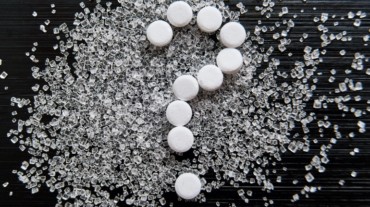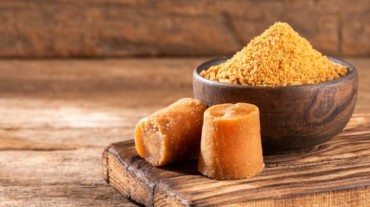
You might feel oh-so-proud, while mixing that artificial sweetener in your parent’s food. But, do you even know how bad they can be for their health? We know it’s easy to get impressed with those fancy TV commercials, but have you ever thought that they might just be a marketing gimmick?
Those ads often focus on how these sugar substitutes are healthy and safe, but when we had a word with the nutritionist, she had a totally different opinion about these artificial sweeteners.
“Artificial sweeteners are basically some chemicals that are added to the foods in order to make them taste sweet,” says nutritionist Manisha Chopra.
Many people use these artificial sweeteners in their meals in place of sugar, just to lose weight. A pinch of these sweeteners is enough to make your food taste sweet. Plus you don’t add any calories to your meal.
Most diabetics use artificial sweeteners in their food, as they do not want to increase blood sugar levels or insulin levels in the body. These sweeteners can help diabetics to reduce their sugar intake. They are generally considered safe for consumption. But, consuming it in the long run may have some major repercussions.

1. Saccharin: Saccharin is used in both hot and cold food items. Pregnant women or the ones who are breastfeeding should avoid this sweetener.
2. Aspartame: It can be used for both warm and cold food.
3. Stevia: It is a low-calorie sweetener, and is rich in antioxidants and anti-diabetic properties. It is better than the rest, and usually extracted from a natural plant source. But again, in the longer run, it can also show its true colors.
4. Sucralose: This sweetener can be used, while baking or cooking. It is mostly present in processed food.
“Artificial sweeteners impact different people in different ways, depending on their family history and age. I totally understand that even diabetics crave for sweet things, but at what cost,” says a concerned Manisha Chopra.
Select Topics of your interest and let us customize your feed.
PERSONALISE NOWDid you know artificial sweeteners play games with your taste buds? They match with the sweet taste receptors of your tongue.
To manage their blood sugar levels, diabetics are heavily dependent on these sugar substitutes, but remember it is not advised to consume these artificial sweeteners frequently. You should also cut down on the quantity of sweeteners you are using in your meals.
The biggest shocker is that artificial sweeteners are linked to chronic illnesses like cancer, and this is the biggest reason why you should limit its use.
Also, watch:
In fact, a study published in the Journal of Pharmacology & Pharmacotherapeutics suggests that consuming artificial sweeteners for a longer time can also lead to problems like weight gain, brain tumors, bladder cancer and many other health hazards.
“Instead of these sweeteners, it is always better to go for natural sugar, in moderation of course. Take very small quantities of honey or jaggery, and tackle your cravings. Even dates and raisins add a hint of sweetness to your food. Plus, they are a healthier option, especially for diabetics. And it is always better to steer clear of any kind of substitutes, as there is nothing natural about them,” she concludes.
So ladies, don’t fall prey to those artificial sweetener TV ads, as they tempt and mislead you. In the end, it is better to be safe than sorry!
Get Latest Updates on Healthy Eating, Nutrition, Recipes, Superfoods